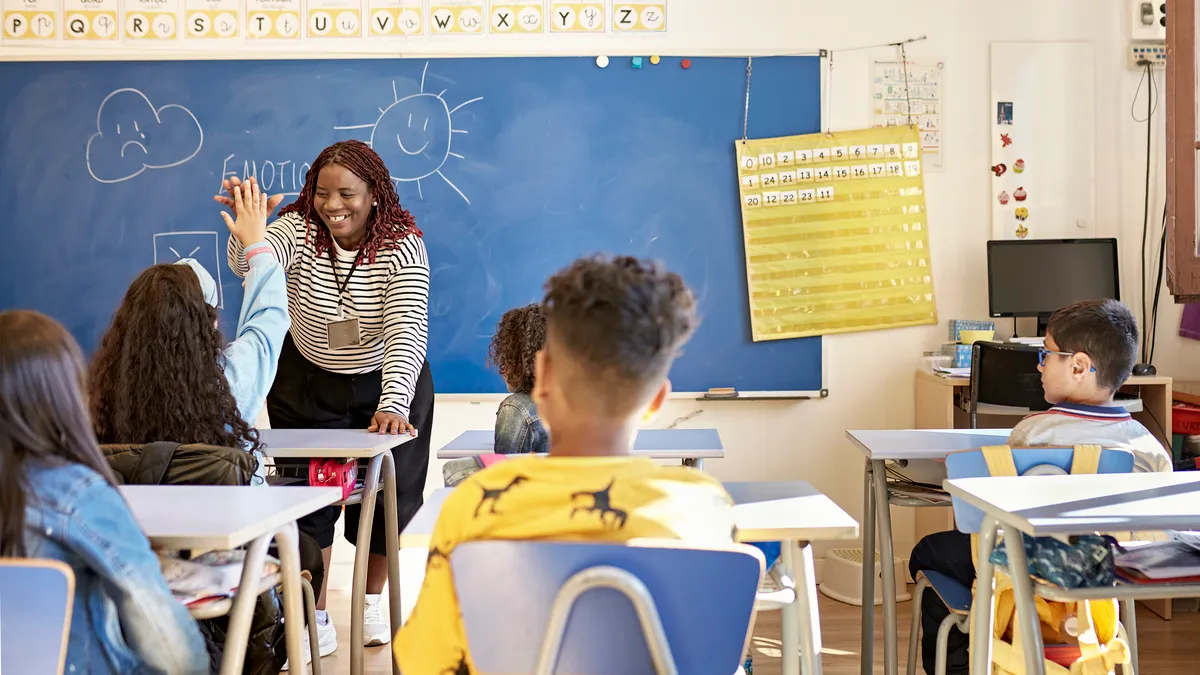As school systems go all-in to accelerate student learning and make up for academic losses due to the COVID-19 pandemic, how administrators and educators apply these interventions matters as much as the strategies themselves.
A new report from EdResearch for Action — a joint initiative of the Annenberg Institute at Brown University and Results for America focused on promoting prove education strategies — finds, for instance, that academic intervention can yield better results when content is scaffolded for grade-level content rather than just reteaching past material.
In other words, it's not enough just to know what the evidence-based approaches are, but educators must also ensure optimal design approaches are being taken, said Ayesha Hashim, a research scientist at NWEA, who co-wrote the report with Emily Morton, a researcher at the Center for Analysis of Longitudinal in Education Research at the American Institutes of Research.
"We really wanted to shine light on the evidence and what we know can have an impact on student achievement, as well as the interventions that we know [and] the design conditions that need to be there to drive those gains," Hashim said.
School systems are under pressure to recover learning as assessment results have shown achievement continues to lag behind pre-pandemic rates. At the same time, districts are bracing for the end of COVID-19 emergency relief funds, which included a required district set aside for learning recovery. Those funds must be obligated by Sept. 30, 2024.
Teaching shortages and scheduling logistics also create challenges for planning effective academic interventions.
"We've never been in this kind of a situation before … where districts have needed to do tutoring at such a level of intensity for so many students, so that's probably something where we're going to have to learn as we go," Hashim said.
Here are some of the report's recommended approaches — as well as those to avoid — to enhance academic interventions:
Do's
- Offer high-impact tutoring using evidence-based practices. Research shows high-impact tutoring is more effective if it's delivered two or three times a week for at least 30 minutes per session and with four or fewer students in a group. Other effective practices include scheduling sessions during the school day, aligning with curriculum and using skilled tutors.
This approach could mean students who are behind would need to fit these sessions into their schedules without missing core instruction time. Hashim stresses that these options should be clearly communicated to families and be based on students' individual needs. - Consider short-term interventions during summer break or other school vacations. Effective summer or school break programs tend to have attendance requirements, employ high-quality teachers, have lesson plans that align with school-year standards, and offer enriching activities for student engagement.
Although this could be easier to implement than school-year high-dose tutoring, it would still need to include the design elements that make these academic interventions impactful, Hashim said. - Have students double up on math classes. Students might need a second hour of algebra or may need to forgo some elective classes temporarily to practice skills so they can accelerate learning and be prepared to progress in math.
- Take time to address social and emotional needs. Interventions often have more positive effects when social and emotional needs are addressed alongside academic needs.
"We can't just think about recovery for academics," Hashim said. "It has to be integrated with relationship building and emotional supports."
Don'ts
- Hold students back a grade unless done equitably and with substantially more support. While proponents of grade retention say it gives students more time to strengthen academic skills, opponents cite negative effects such as lower self-esteem and motivation, along with equity concerns.
Some research has found short-term benefits for elementary school retention policies, though middle and high school retention has been shown to correlate with lower rates of course completion and high school graduation. - Replace, rather than supplement, core instruction. Students shouldn't be missing grade-level core instruction, even if that time is used to support academic intervention.
"I think scheduling an intervention while that grade-level instruction is taking place … would be almost like you're taking away from the efficacy of the actual intervention," Hashim said. - Teach advanced content without additional help. Accelerating learning by introducing concepts that students aren't ready for will not likely be successful. Research indicates advanced learning programs, such as grade-skipping or taking demanding courses, only benefit students when data shows they are prepared, are socially and emotionally ready and motivated for the advanced work.







 Dive Awards
Dive Awards





